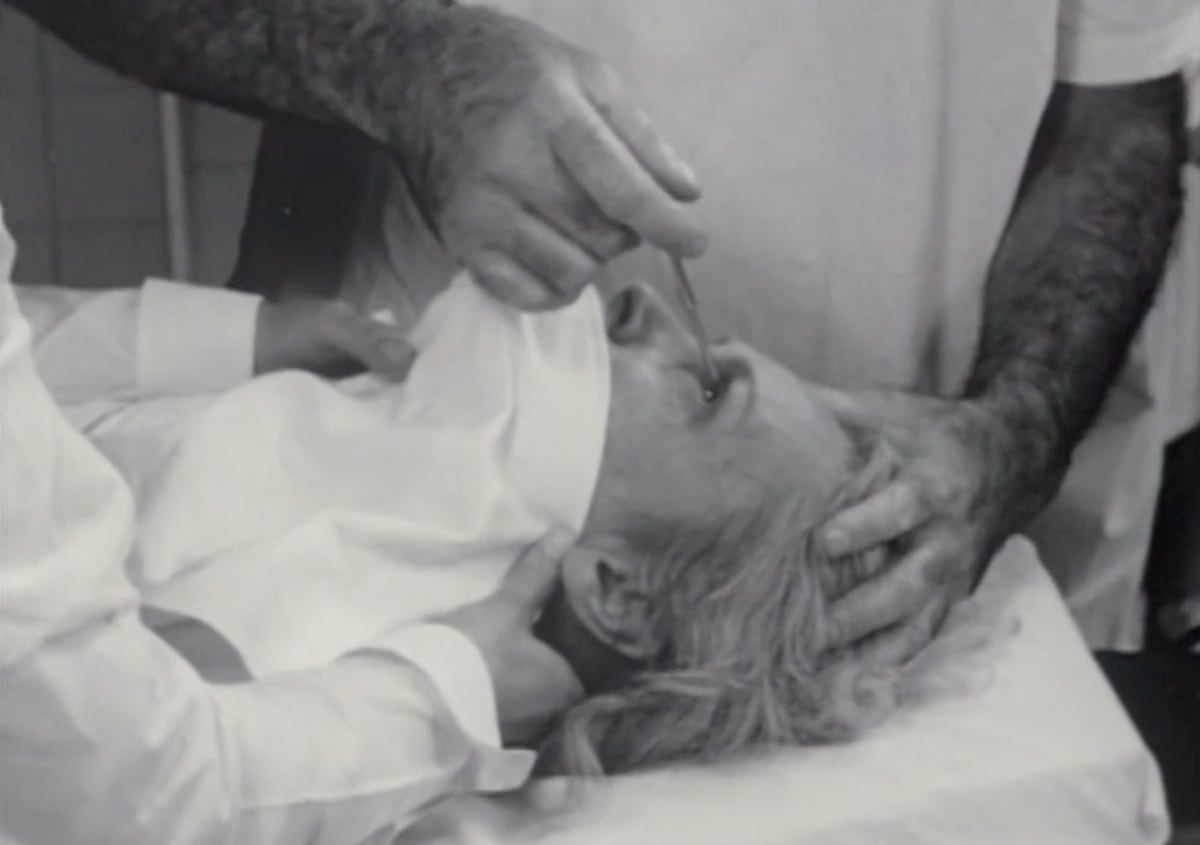Francisco Villar, this winter in Barcelona. MASSIMILIANO MINOCRI
In 2021, 314 minors committed suicide in Spain.
According to the latest data available from the National Institute of Statistics (INE), 22 of those deceased were under 15 years of age, 57% more than in 2020. For each completed suicide, there are between 100 and 200 attempts to commit it.
“There is only one thing worse and more serious than being told that your son has died: that the person you love the most in this world has killed the person you love the most in this world,” says Francisco Villar, a 46-year-old clinical psychologist who In 2023, he celebrates a decade as coordinator of the care program for suicidal behavior in minors at the Hospital Sant Joan de Déu in Barcelona.
He never envisioned himself performing that position, but since this man from Barcelona cared for the family of a minor in intensive care after falling into the void,
He understood that this was his path.
That of listening and detecting the specific problems that are causing more and more kids to want to take their own lives.
More information
Marta Peirano: "You don't know if you can leave your 15-year-old son alone with the nets"
To shed light on this growing reality, Villar has published
Dying before suicide.
Prevention in adolescence
(Herder, 2021), a manual to dismantle myths and name what many want to show that does not exist.
“When I started in this I didn't have any children and now I have four.
I suppose that facing death makes you want to live life more ”, she reconsiders, practically at dawn, in the Herder offices, where she has scheduled this interview before starting her workday.
ASK.
What motivated you to write this book?
ANSWER.
That there were none.
Suicide is often spoken of as something multifactorial, multicausal, as something extremely complicated.
I understood that I would have needed it for my daily practice.
Also that I had to transform that pain that is only shared with families into prevention for the future.
When something is very muted, you are left alone with your suffering.
It does not have to be this way.
Q.
Clarify that suicide is not a disease.
He wants to debunk the myth that all suicide bombers are mentally ill.
R.
How did a problem that is the main cause of death among young people seem to have to go through all the health circuits in order to treat it?
Suicide was below mental health, in the first instance, and depression, in the second.
But, for example, if suicide is related to
bullying
, which is a specific problem, why did everything have to go through a mental pathology?
Bullying is not a mental disorder, any more than sexual abuse or mistreatment is.
Suicide may stem from a disorder, but it is not a disease.
Q.
Why do you think more adolescents commit suicide?
R.
Adolescents commit suicide for the same things as before, but now the networks suffocate their lives.
I don't want to sound very pessimistic, but the networks are killing them.
We are at our worst moment: we have to continue doing the work that we had pending, but the screens and how they affect neurodevelopment in childhood have done a lot of damage and have overwhelmed us.
Francisco Villar Cabeza, in Barcelona this winter.
MASSIMILIANO MINOCRI
Q.
On what terms?
A.
Think about
bullying
.
Before that boy was harassed by four kaffirs in the school environment and it was already serious, but that boy returned home anguished and there he found the support of his parents.
A breath to tell.
Now it turns out that while he was sleeping, someone 12 years old made a meme for him, and that brutal mockery is posted on the networks and he doesn't know how extensive it is.
They feel that the bullying follows them everywhere, it does not give them rest.
Q.
We want to think that digital natives know how to deal better with these situations.
A.
That is absurd.
Social networks are like slot machines, they are programmed to generate addiction.
And they are promoting, and without stopping to remedy it, because many are getting rich with it, anorexia and suicide.
Q.
What do you propose?
R.
I do not advocate a general blackout, but if the arrival of the vehicle changed the social organization, and it was stipulated that you could not drive until you were 18, with the networks we should operate the same.
If I leave my car with my eight-year-old daughter and she kills someone, whose fault is it?
You cannot imagine the level of satisfaction that children have with the accounts in pro-suicide networks.
It doesn't matter if they are in Huelva or Alicante.
These kids have more contacts and, at the same time, they are more alone than ever.
More information
Social networks: when sharing is humiliating
Q.
It stresses the need for perfection that many adolescents feel.
Are we asking too much?
R.
Many times, the worst thing that can happen to a boy is that he is good at something.
The competitive and consumer model in which we socialize makes us be at a level of perpetual dissatisfaction.
We no longer need a persecutory boss, we are already the exploiter and the exploited.
And that, to adolescents, destroys them.
P.
Advocates for safe spaces to reflect on suicidal ideation.
In not ignoring those mislabeled as "calls for attention".
R.
What does someone get by saying they want to kill themselves?
If I throw a tantrum because I want a gift and they buy it for me, I get something.
What do you get by saying you're going to end your life?
You get your partner to leave you, your friends to distance themselves from you, your parents to become a persecutory entity.
No one makes their life better by threatening to kill themselves.
They are asking for help.
Q.
The problem is that this is not talked about.
And many times it is not reported, as has been done in the media, for fear of the effect of social contagion.
R.
In schools, for example, it was forbidden to talk about suicide.
I have come across professors who have been teaching for 20 years and have not dealt with the subject.
How can it be that he passed them by without doing anything?
Suicide can be understood very simply.
It does not take away from its impact, and I understand the respect and fear it imposes, but, beyond the contagious effect, understanding it clearly can help us intervene and prevent it.
Q.
And what would you say to those who advocate freedom to decide to end their lives?
R.
Here I think it is possible to distinguish between euthanasia and suicide.
It is not the same and you have to differentiate things to know how to treat them.
My job is to try to bend that supposed freedom to choose in front of a boy who tells me that he wants to die.
I will not agree with that decision.
I am intransigent with this: perhaps what he is trying to tell me is that he wants to kill a way of life, not kill life.
Subscribe here
to the weekly newsletter of Ideas.
Subscribe to continue reading
Read without limits
Keep reading
I'm already a subscriber


/cloudfront-eu-central-1.images.arcpublishing.com/prisa/S7LJOK2FUJETBONYOXZTNAWH7Y.jpg)


/cloudfront-eu-central-1.images.arcpublishing.com/prisa/SWA3YXJH7NEJTH7RDLHM44VVRE.jpg)









